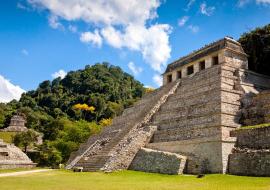World Tourism Day: Promoting Sustainable Growth and Cultural Exchange

World Tourism Day, celebrated annually on September 27, is an important global observance that shines a spotlight on the economic, social, and cultural significance of tourism. Established in 1980 by the UN Tourism, the day encourages nations to reflect on the potential of tourism to foster mutual understanding, sustainable development, and peaceful global relations. As the world becomes more interconnected, the relevance of World Tourism Day continues to grow, bringing into focus the role of tourism in enhancing international cooperation and driving inclusive economic growth.
In this article, we’ll explore the history of World Tourism Day, its significance for global development, and the role it plays in promoting sustainability and cultural exchange.
History of World Tourism Day
World Tourism Day was instituted to raise awareness of the important role that tourism plays in fostering global development and cross-cultural dialogue. The date, September 27, was chosen to coincide with the anniversary of the adoption of the UN Tourism Statutes in 1970, a milestone in global tourism.
Each year, World Tourism Day has a specific theme that reflects a pressing issue or goal in the global tourism industry. Past themes have addressed topics such as sustainable tourism, digital transformation, and the empowerment of women through tourism. These themes encourage stakeholders—ranging from governments to local communities—to work towards a shared vision of a more equitable and sustainable tourism industry.
Economic Importance of Tourism
Tourism is one of the largest and fastest-growing sectors in the global economy. According to UN Tourism, before the COVID-19 pandemic, the tourism industry accounted for approximately 10% of global GDP and provided employment for one in ten people worldwide.
World Tourism Day emphasizes the potential of tourism to drive economic growth, particularly in developing nations. Tourism creates jobs, supports local businesses, and generates revenue for local and national governments. It provides a critical source of income for many countries, particularly those with limited natural resources or other economic opportunities. Moreover, tourism fosters investment in infrastructure, such as airports, roads, and communication systems, which benefits local communities and the overall economy.
Key Economic Benefits of Tourism:
- Job Creation: Tourism is labor-intensive, providing direct employment in sectors like hospitality, transportation, and entertainment, and indirect employment through supply chains.
- Foreign Exchange: International tourism brings in foreign exchange, which can help stabilize economies, especially in developing nations.
- Infrastructure Development: Investments in tourism infrastructure often lead to improvements in transportation, utilities, and public services that benefit both tourists and residents.
Tourism as a Tool for Cultural Exchange
Beyond its economic value, tourism plays a vital role in promoting cultural understanding and exchange. When people travel, they are exposed to new cultures, languages, and traditions, fostering empathy and tolerance. World Tourism Day is an opportunity to celebrate this cross-cultural interaction and its ability to break down barriers.
Tourism helps preserve cultural heritage by promoting awareness and appreciation of different traditions, languages, and historical sites. UNESCO World Heritage Sites, for example, attract millions of tourists annually, encouraging countries to invest in the protection and restoration of important landmarks. Tourism also provides communities with the incentive to preserve intangible cultural assets, such as music, dance, and culinary traditions.
Cultural Benefits of Tourism:
- Cultural Exchange: Tourists and locals alike gain exposure to different worldviews, promoting mutual understanding and respect.
- Heritage Preservation: Tourism encourages investment in the preservation of historical sites and traditions.
- Support for Arts and Crafts: Many communities are able to sustain traditional crafts and art forms due to the demand from tourists.
Sustainable Tourism and Its Future
Sustainability is a core theme in the global tourism industry, and World Tourism Day provides a platform to advocate for environmentally friendly practices. The rapid growth of tourism has brought challenges, including environmental degradation, overcrowding, and negative impacts on local communities. Responsible tourism practices aim to minimize these effects by promoting conservation, reducing waste, and encouraging ethical travel behaviors.
Sustainable tourism focuses on ensuring that tourism development meets the needs of the present without compromising the ability of future generations to meet theirs. This includes protecting natural environments, supporting local economies, and promoting ethical tourism practices.
Pillars of Sustainable Tourism:
- Environmental Protection: Reducing the carbon footprint of travel, promoting eco-friendly accommodations, and protecting biodiversity.
- Cultural Preservation: Encouraging travelers to respect local cultures, traditions, and customs.
- Community Development: Ensuring that tourism benefits local communities by creating jobs and supporting local businesses.
World Tourism Day often focuses on the potential for tourism to drive positive change, particularly in line with the UN’s Sustainable Development Goals (SDGs). By promoting responsible travel, governments, businesses, and tourists can work together to ensure that tourism remains a force for good in the world.














